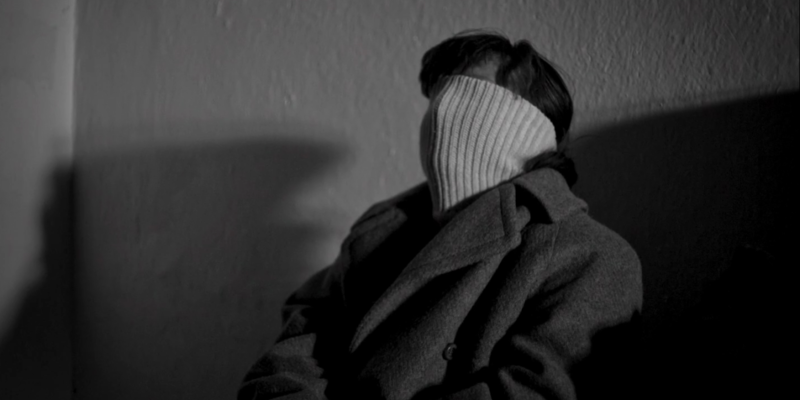
In 1980 Czechoslovakia, two young men enter a Catholic seminary under
investigation by the Communist authorities.
Review by
Eric Hillis
Directed by: Ivan Ostrochovský
Starring: Samuel Skyva, Samuel Polakovič, Vlad Ivanov, Vladimír Strnisko, Milan Mikulčík

In the manner of Goodfellas, Ivan Ostrochovský's Servants opens in media res
with the aftermath of a killing. Two men drive a car to a secluded area
and dispose of a body before wiping blood off their shoes. This isn't
some mob hit, but rather a state-sanctioned killing. We're in the
Czechoslovakia of 1980, where those who defy the authorities are
routinely disappeared and disposed of.

Servants' narrative subsequently takes us back several months as two young men
- Juraj (Samuel Skyva) and Michal (Samuel Polakovič) – are
enrolled at a dour Catholic seminary. While the practice of religion is
technically banned, the state has worked out a compromise with a
Catholic group known as Pacem in Terris, allowing priests to perform
their duties under the watchful eye of the state. This is in direct
contravention to the orders of the Vatican, which has decreed that
priests are forbidden from collaborating with the Communist Party.
There's much hypocrisy at play in this scenario. Like the Soviet
version of Communism, the Catholic Church preaches equality while its
leaders live in a luxury denied their followers. But Ostrochovsky isn't
interested in exploring the Church's sanctimony. In his eyes the
Catholic Church is a resistance movement, battling Communism, which is
portrayed with all the nuance of a 1950s American 'Reds under the beds'
propaganda short.

Communism is embodied here by the sinister figure of Ivan (Vlad Ivanov), a balding bureaucrat who keeps tabs on the seminary, plying its dean
with much sought after vodka. Working against him are forces within the
seminary, with Juraj taken under the wing of the rebellious priests and
placing himself in danger.
Servants favours atmosphere over narrative. It's an
approach I would generally applaud, but here it feels a little too
mannered. Shot in the crisp monochrome of an early Depeche Mode video
with an industrial soundscape reminiscent of Eraserhead, Ostrochovsky's film looks and sounds like a horror movie, but you
would need to be an unquestioningly devout Catholic to view its
narrative in such terms. There's even a dash of Cronenbergian
body-horror as Ivan's flesh is gradually covered in lesions, perhaps a
physical manifestation of his guilt. The portrayal of 1980
Czechoslovakia is so overwhelmingly bleak it almost comes off as parodic
– everyone looks like they belong on that train Woody Allen finds
himself stuck on in Stardust Memories.

As someone with a left-wing viewpoint and a suspicion of organised
religion, Servants was always going to struggle to win
this writer over. That said, I'm more than willing to put my own
political baggage aside to engage in a good thriller. Had
Servants done more to invest its audience in its two young
protagonists – who seem to share an unexplored homoerotic frisson – then
it could well have been a nerve-wracking Cold War conspiracy thriller.
It's certainly cold, with Ostrochovsky's camera viewing events with a
dispassionate distance, but it's never quite as chilling as this story
of paranoia and fear of authoritarianism should be.


